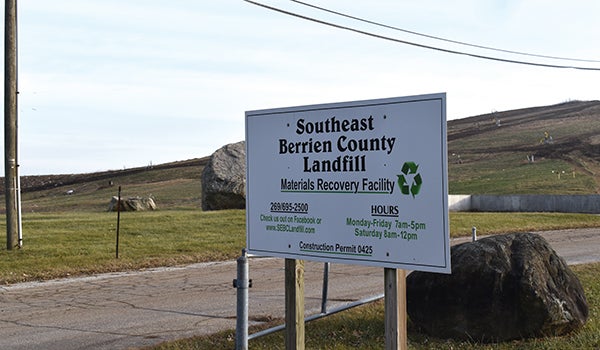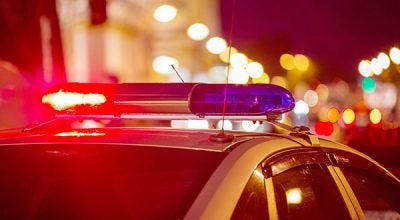Landfill board votes down committee addressing contaminants
Published 8:01 am Thursday, December 26, 2019
NILES — With a 5-5 split, Southeast Berrien County Landfill Authority’s board voted down a measure to create a committee addressing contaminants potentially within the landfill and spreading elsewhere.
Board members Dale Toerne, Tom Gordon, Dan Pulaski, Malinda Cole-Crocker and David Kuhn voted for the committee during SEBCLA’s monthly meeting Wednesday, Dec. 18, at 1540 Mayflower Road, Niles. Board members J.T. Adkerson, Derek Gordon Herschel Hoese, William Weimer and Dave Zelmer voted against it.
It will be up to Emily Peters, SEBCLA environmental manager, and her team to stay up-to-date, examine and inform the board on PFAS law updates and issues, a move Peters said she is comfortable with.
Discussion of creating the Emergency Contaminant Committee centered around the potential presence of per- and polyfluoroalkyl substances, collectively called PFAS. The compounds are found in materials ranging from food packaging to firefighting foam to shoes.
Numerous communities in Michigan have discovered high levels of PFAS in drinking water systems that approximately 1.9 million people drink from. More people could be found affected as more research concludes.
The high levels caused concern among health and environmental experts due to a possible linkage to cancer, and numerous efforts are being made to combat it.
One such effort was the reason for the board vote. The state of Michigan’s citizen taskforce, the Michigan PFAS Action Response Team, is hosting three public hearings and receiving public comment until Jan. 31, 2020, regarding its draft PFAS standards.
Through research conducted by the Michigan Department of Health and Human Services, U.S. Centers for Disease Control and Prevention and a workgroup of epidemiologists and toxicologists, the task force is considering approving seven PFAS compound limits in drinking water that are multiple times stricter than the Environmental Protection Agency’s standards, which some experts claim to be unenforceable.
The closest recorded PFAS contamination to the landfill is between M-60 and Pine Lake Street in Howard Township. In 2016, a gasoline tanker spilled, prompting Howard Township firefighters to use firefighting foam on it. The foam contained PFAS compounds which sank into the watershed.
Tyler Ganus, SEBCLA’s general manager, would not say whether the landfill had detected PFAS on its premises, nor the position it took on the proposed PFAS compound level limits.
“SEBCLA is looking into PFAS compound issues because management finds it vital to stay current with all emerging issues that may present an operational challenge,” he wrote over email.
Peters, the environmental manager, told board members prior to their vote last Wednesday that she is well-versed on PFAS and the laws and research around it. She was not against creating a board, but she said her expertise and her work around PFAS would likely be enough.
“Everyone is at a learning position right now,” she said. “We’re all at different parts. It’s helpful that we all get everyone’s opinions, but yes, I’m very up-to-date on what’s going on.”
Becoming educated was a reason why Pulaski, who is also a Niles Charter Township trustee, wanted to have the committee.
Kuhn, who is also Bertrand Township’s supervisor, said he thought the committee could make use of a few board members’ experience in waterworks.
Derek Gordon, Niles Wastewater Treatment Plant supervisor, said he truly appreciated Kuhn’s suggestion. He had been for it when it was first proposed.
Since the proposal, however, Gordon changed his mind.
“I think we should invest in Emily and her staff to learn everything,” he said. “They’re the ones that are going to be dealing with it. Put that money and energy into them.”
While SEBCLA and its board members wait for Michigan’s PFAS task force to vote on draft water level limits, residents of Michigan can still submit public comments to the task force on the issue.
Comments can be emailed to EGLE-PFAS-RuleMaking@Michigan.gov or mailed to Suzann Ruch, Drinking Water and Environmental Health Division, Department of Environment, Great Lakes, and Energy, P.O. Box 30817, Lansing, MI 48909.







